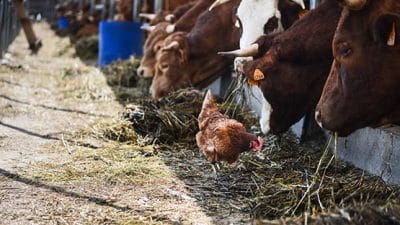
Cattle graze on grass year-round, and there’s a growing concern about them eating grass infected with a toxic fungus. This can cause multiple health issues, including loss of livestock.
The toxin stems from a fungus that grows inside tall fescue, a grass which covers most of the state’s pastureland, noted Dr. Gabriel Pent, ruminant livestock system specialist for Virginia Tech’s Southern Piedmont Agricultural Research Station. “The fungus that helps the grass survive season after season is the same fungus that produces certain chemicals that cause animals to become heat stressed.”
When cattle are heat stressed, they experience weight loss and decreases in milk production and fertility rates, Pent explained. In addition to beef cattle, the state’s sheep, goat and horses that forage on grassland could be affected as well, he said.
Researchers at Clemson University have estimated that revenue losses from fescue toxicosis can reach $1 billion annually in the U.S.
That’s why Virginia Tech, in conjunction with the Alliance for Grassland Renewal, decided to host workshops to teach farmers how to replace tall fescue with a non-toxic variety. The workshops also will cover topics such as establishment of tall fescue varieties, seed testing, long-term pasture management and innovative products.
A workshop for Virginia producers will be held March 15 from 8:30 a.m. to 5 p.m. at the Raphine Volunteer Fire Company in Rockbridge County. As many as 60 farmers are expected to attend the workshop, and Pent said they hope to offer more sessions in the future.
For more information or to register, visit grasslandrenewal.org/education.htm.










